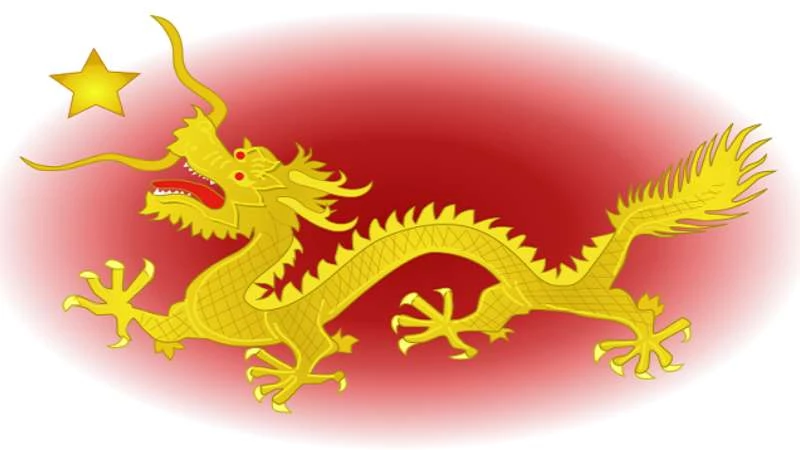Meanwhile, the Middle East region grabbed a chance to rid itself off of its colonizers and the US attempt to raise slogans of the democratic free world causing the liberation struggle which resulted in the independence of the one Arab state after the other through a decade or more. In addition, the developing nations of the third world clinched that opportunity and formed the non-aligned bloc, which turned out to be a counterbalance bloc reaching the United Nations on the economic and political levels.
At that time, China was still licking its wounds from its civil war on the one hand and its wars with its Japanese and Korean neighbors on the other hand, as it turned a blind eye to the Soviet Union’s capturing of its northern territories and the West’s capturing of its East edges in the South China Sea and its islands bordering the statelets of South-East Asia.
China was still preparing itself and developing solutions to its problems when it began in the 50’s of the last century to indulge itself in the outside world, which did not – at the time – give it the equivalence to the weight of its population and civilization. And when it found out then that the Soviet Union, an ideological, political ally and friend – is working for its own interests and that helping in the creation of a strong modern Chinese neighbor was not a priority to it, China under Mao leadership began to gradually lose grip after introducing a new Marxist ideology different from the one practiced in the Soviet Union. Gradually, their relationship turned into a hostile conflict over thousands of kilometers along the Soviet Union’s northern border.
Despite the fact that China was representing the strategic depth of the Vietnamese revolution in its struggle to break free from the French in the 50’s and then to liberate south of Vietnam from the US occupation in the 60’s until its unity was achieved in the 70’s, but the Soviet Union’s support and assistance of the Vietnamese had a decisive role in their liberation and unity. And so, the Chinese leadership realized that exporting its new theories and forming global parties affiliated with it on the side-lines of the Soviet Communist parties will not guarantee its global interests and would not give it global political weight.
I will not dwell on the Chinese shift any more since this is for another discussion, but I will draw attention to the Chinese policy which made it a decade later an economic giant with the East, West, South and North complaining of the invasion of its goods into their markets, to the extent that it was the leading cause in the closure of many Western factories and stopping a mortal competitor for Japan, which was known as the miracle of the century.
No country in the world benefited from the globalization strategy like China did. Its development ratio reached to unprecedented numbers, even though it pursued a mechanism of not entering the global political disputes and re-aligned with Russia – a successor to the Soviet Union – and left Moscow the leadership dispute with the United States in East Asia. But it was able – peacefully – to recover the islands of the South China Sea and everything that was previously taken from it through technical development and the opening of foreign investment, which allowed its economic strength to politically bargain and grab a seat among the eight superpowers of the world.
China was never unaware of the importance of its interests in the Middle East. In addition to being the oil resource needed by its factories, it is also the most lucrative consumer market for its industry. It was connected in the past just as it is in the present and future to Europe and the entire world, and just as the usual habit of the Chinese policy that relies on patience and on factoring facts supported silently, it launched a project to revive the historical silk road – not only as a tourist project inspired by heritage only, but as an economic and political project par excellence since the shores of the eastern Mediterranean ports are needed to achieve China’s goals.
Because of that, its stance towards the Syrian Revolution was as follows: coordination with Moscow internationally in the Security Council, without intervening militarily with only providing arms and without obvious media presence, but that did not stop it from drawing attention to its interests and saying – during a visit of one of its battleships to the Syrian shores – "I’m here; do not forget it.” And today, as it seems, China indirectly demanded its share of the Syrian pie via the international highway to combating terrorism. Here are its officials declaring that it is ready to militarily join the fight! It is the first time that China was militarily preparing to get out of its bubble.
What is this Syrian Revolution? Who could have imagined that the Syrians who demonstrated demanding for freedom and dignity, would reach to the point in which they get China out of its own bubble too? However, the problem is that the Syrian pie is too small to fulfill all those interested in taking a piece. Therefore, what piece does China desire after the two Russian and US superpowers have already called shotgun to its juiciest parts and left the small crumbs for the regional and non-regional countries? Is there left to satisfy China’s desire? Or does the creeping dragon want full partnership with Iran and Russia, after it supported them with everything they demanded?
The Syrians are only left with the option of preventing themselves from bleeding as they are stabbed by the knives of interests.



التعليقات (0)